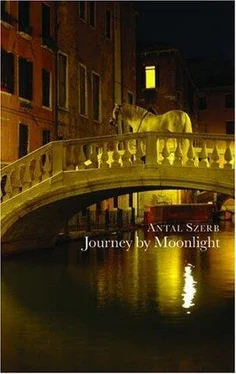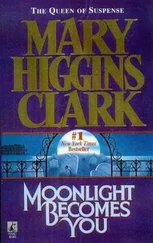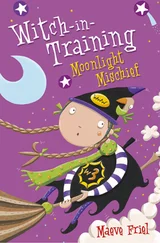The hours passed in a pleasant daze. The night was now much advanced, and he stood once more on top of the grassy hillock under the umbrella pine, listening to those strange inexplicable voices which had troubled him again and again in the course of the evening.
The voices came from behind a wall, a truly massive wall, which as the night went on seemed to grow steadily higher, soaring into the sky. The voices swelled out from behind the wall, sometimes stronger, sometimes fainter, sometimes with ear-splitting intensity, and sometimes no louder than the far-off lamentation of mourners on the distant shore of some lake or sea, under an ashen sky … then they fell silent, were totally silent for long stretches of time. Mihály would start to forget about them and feel again like a man at a garden-party, and allowed Waldheim, brilliantly in his element, to introduce him to one woman after another, until once again the distant voices rose.
They did so just at a time when the general mood had begun to develop agreeably, as everyone slipped towards the subtler, deeper stages of drunkenness, the effect of the night rather than the alcohol. They had passed beyond the threshold of dreams, the habitual hour of sleep. Now distinctions were becoming blurred, rational morality was in retreat as they surrendered themselves to the night. Waldheim was singing extracts from The Fair Helen , Mihály was busy with a Polish lady and everything was quite delightful, when he again heard the voices. He excused himself, went back to the top of the mound, and stood there alone, his heart palpitating in the tenseness of his concentration, as if everything depended on resolving this enigma.
Now he could hear quite distinctly that the voices beyond the wall were singing, and there were several of them, probably men, intoning a dirge unlike anything ever heard, in which certain distinct but unintelligible words rhythmically recurred. There was a profound, tragic desolation in the song, something not quite human, from a different order of experience, something reminiscent of the howling of animals on long dark nights, some ancient grief from the great age of trees, from the era of the umbrella pines. Mihály sat back under the pine and closed his eyes. No, the singers beyond the wall were not men but women, and he could already see them in his mind’s eye, a strange company, something out of Naconxipan , the mad Gulácsy painting of the denizens of wonderland in their oppressive lilac-coloured attire, and he thought that this was how one would mourn for the death of a god, Attis, Adonis, Tamás … Tamás, who had died unmourned at the beginning of time, and now lay in state out there beyond the wall, with the sunrise of tomorrow dawning on his face.
When he opened his eyes a woman stood before him, leaning with her shoulder against the umbrella pine, in classical costume, exactly as Goethe imagined the Greeks, and masked. Mihály politely straightened his posture, and asked her in English: “You don’t know who those men or women are, singing through the wall?”
“But of course,” she replied. “There’s a Syrian monastery next door. The monks chant their psalms every second hour. Spooky, isn’t it?”
“It certainly is,” said Mihály.
They were silent for a while. At last she spoke:
“I’ve a message for you. From a very old acquaintance.”
Mihály promptly stood up.
“Éva Ulpius?”
“Yes, a message from Éva Ulpius. That you are not to look for her. You won’t find her anyway. It’s too late. You should have, she says, in that house in London, when she was hiding behind the curtain. But you shouted out Tamás’s name, she says. And now it’s too late.”
“Even to speak to her?”
“Much too late.”
The cry of pain swelling up through the wall as if in grief for the rising dawn, in lamentation for the passing of night, now lost its strength, became a faltering, broken wail, tearing at itself, murderously. The woman shuddered.
“Look,” she said. “The dome of St Peter’s.”
Above the grey city the cupola hovered, white and very cold, like unconquerable eternity itself. The woman ran off down the hill.
Mihály felt an immeasurable fatigue. It was as if he had all the while been anxiously clutching his life in his hands, and had just let it slip away.
Then he suddenly pulled himself together and rushed after the woman, who had now vanished.
Down below there was a tight crush of people. Most were taking their leave, but Waldheim was still reading aloud from the Symposium and holding forth. Mihály scurried here and there in the seething crowd, then raced to the main gate hoping to find the girl in the press of people boarding coaches.
He arrived just in time. She was climbing into a splendidly old-world open carriage, where the shape of a second woman was already seated, and the coach moved off briskly. The other woman he recognised instantly. It was Éva.
THE BANKERS’ DISCUSSION was becoming interminable. The matter could in fact have been resolved quite simply if all those round the table had been equally intelligent. But in this life that is rarely given. The lawyers dazzled one another with their skill in sliding down the very steepest sentences without falling off, while the powerful financiers said little, listening suspiciously, their silence saying more eloquently than any words: “Count me out.”
“No deal will come of this,” thought Zoltán Pataki, Erzsi’s first husband, with resignation.
He grew steadily more restless and impatient. He had noted several times of late that his mind would wander during discussions, and ever since he had noticed that fact he had become even more restless and impatient.
The protracted blast of a car-horn sounded beneath the window. Previously, Erzsi would often wait in the car down below if the discussion went on at length.
“Erzsi … try not to think of her. It’s still painful, but time will cure that. Just keep going. Just keep going. Emptily, like an abandoned car. But just keep going.”
His hand made a gesture of resignation, he pursed his lips oddly, and he felt very very tired. In recent days these four connected acts kept recurring in automatic sequence, like a sort of nervous tic. Thirty times a day he thought of Erzsi, made the resigned gesture, pulled the wry face, and felt a wave of exhaustion. “Perhaps I should see the doctor about this tiredness after all? Oh, come off it. We’re getting on, old chap, getting on in years.”
His concentration returned. They were saying that someone should go to Paris to negotiate with a certain finance group. Someone else was arguing that this was quite unnecessary, it could all be settled by letter.
“Erzsi’s in Paris now … Mihály in Italy … Erzsi doesn’t write a single line, but she must be horribly lonely. Does she have enough money? Perhaps the poor thing has to travel by Metro. If she leaves before nine and goes back after two she can get a return ticket. It’s so much cheaper — poor thing, that’s surely what she’s doing. But perhaps she isn’t alone. In Paris it’s difficult for a woman to remain on her own, and Erzsi is so attractive … ”
This time what followed was not the gesture of resignation, but a rush of blood to the head and: “Death, death, there’s nothing else for it … ”
Meanwhile the meeting was moving towards the consensus that they really would have to send someone. Pataki asked to speak. He threw all his energy behind the view that it was absolutely essential to pursue the matter with the French interest on a personal basis. When he began to speak he was not entirely clear what the issue was, but as he spoke it came back to him, and he produced unassailable arguments. He carried the meeting with him. Then the exhaustion once again overwhelmed him.
Читать дальше












